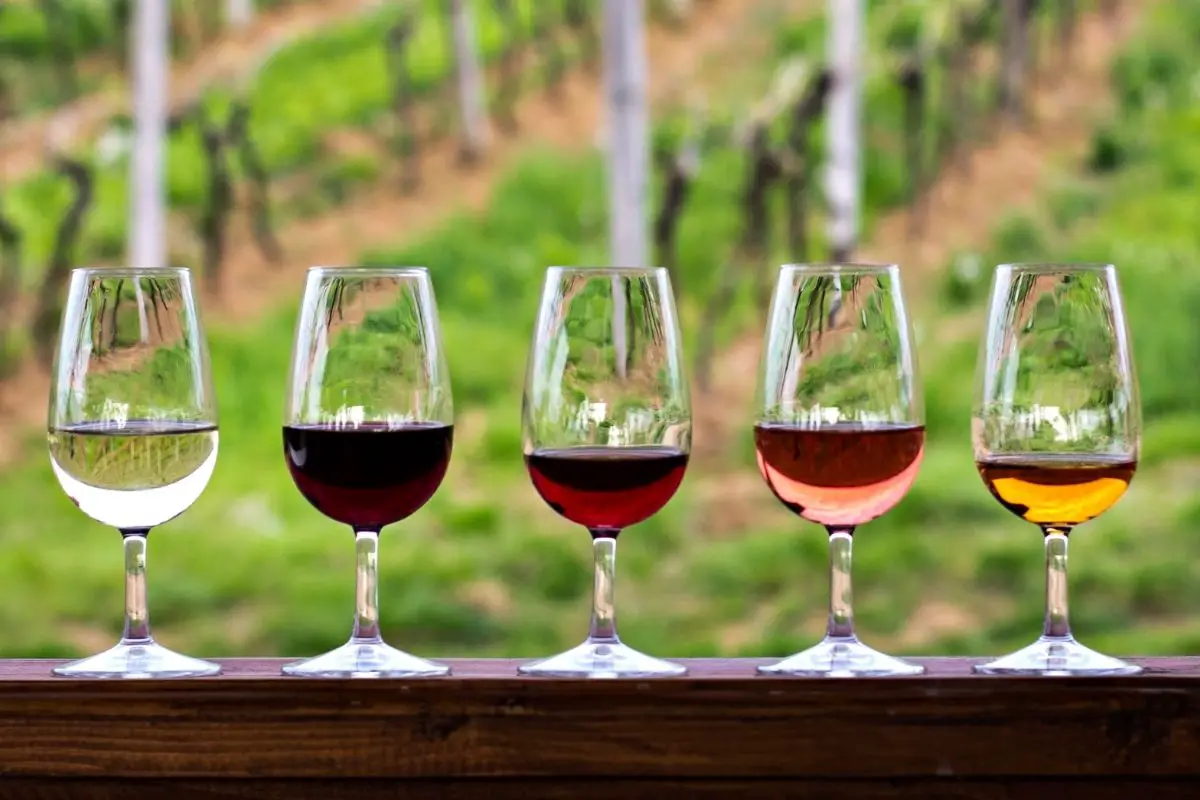Gluten is a protein found in wheat, barley, rye, and other grains. Some people believe that they cannot eat gluten because it causes them to develop celiac disease or gluten sensitivity, but that’s not always the case.

However, if you are worried about the effects that gluten may have on your body, there’s nothing wrong with trying to avoid it.
Of course, this does mean giving up on some food and drinks that you might be pretty fond of, particularly some alcoholic drinks.
Thankfully, wine is not one of these drinks, and it contains no gluten whatsoever.
The same is true of other alcoholic drinks like spirits, hard cider, and port. On the other hand, most beers, lagers, stouts, and ales do contain gluten.
In this article, we’ll be taking a look at what the manufacturing process for alcoholic drinks is like (including how to make wine), what it is that makes a drink gluten-free, and helping you work some gluten-free drinks into your diet.
How Is Gluten Produced In Alcoholic Drinks?
Like we said before, not all alcoholic drinks are gluten-free, with most beers being chocked full of the stuff! Most people know about foods that contain gluten, such as bread and cereal, but you might be wondering how a drink can contain gluten, too.
Gluten is produced during the brewing process when enzymes from malted grain convert starch into sugars. These sugars then go through fermentation to produce alcohol.
While the exact details of how this happens vary by type of beer or ale, basically, the malt is soaked in water and allowed to germinate (grow) before being mashed. This allows the enzymes to break down the starches in the malt into sugars.
After mashing, the mash is heated to allow the enzymes to continue their work converting the sugars into alcohol. The resulting wort is then boiled to kill off any remaining microorganisms and yeast.
Once cooled, the wort is transferred to fermentors where yeast will begin to consume the sugars, producing carbon dioxide gas and ethanol.
Once enough time has passed, the fermented liquid is filtered out and placed in barrels or kegs to age. During this aging period, the flavors in the brews change and become more complex.
What Makes A Drink Gluten-Free?

If you’re looking for a gluten-free beverage, it’s important to understand why certain beverages aren’t suitable for those who need to cut back on gluten.
For example, many beers contain gluten because they use malted barley flour. Malted barley flour is made by soaking ground barley kernels in hot water until the kernels sprout.
This step is known as germination, and it helps the kernel grow roots which make it easier to absorb nutrients. After germination, the kernels are dried and cracked open so that the germ inside can be removed.
This germ is rich in proteins that help give the malt its flavor. When the barley kernels are used to make beer, they are crushed and mixed with water and hops. Hops are added to balance the bitterness of the malt.
Hops also add aroma and flavor to the beer. They are often used in combination with other ingredients to create different types of beers.
However, if you’re allergic to gluten, you should avoid drinking beer made from malted barley flour. If you don’t have an allergy, however, you may still want to consider cutting back on beer consumption.
The reason for this is that the fermentation process produces compounds called diacetyl and acetoin. Both of these compounds contribute to the buttery flavor found in beer.
When you eat wheat products, your body breaks them down and uses the carbohydrates for energy. However, when you drink beer, the carbohydrates remain intact and pass right through your digestive system without getting broken down.
These unbroken carbs cause the same reaction in your stomach as eating raw doughnuts. Your stomach gets confused and thinks it needs to digest something else, like protein. As a result, it releases hydrochloric acid, which causes indigestion.
If you regularly drink beer, you might find yourself experiencing symptoms like nausea, heartburn, bloating, diarrhea, constipation, and even abdominal pain.
It’s not just beer that contains gluten. Many breads and pastas also contain gluten. In fact, some people are sensitive to gluten even when they don’t have celiac disease.
So what about wine? Is wine safe to drink if I’m gluten intolerant?
Wine is generally considered safe to drink if you suffer from celiac disease, though it’s true that there are some wines that contain gluten.
However, most winemakers remove the gluten before bottling. This means that any traces of gluten will be diluted by the alcohol and won’t affect you.
In addition, the fermentation process removes all traces of gluten. The sugar in the grape juice converts into ethanol during fermentation.
As a result, the only thing left over after fermentation is the yeast cells. These cells are too small to see with the naked eye.
They’re also very fragile, so they break up easily. That makes it impossible for them to pass through your intestinal tract and enter your bloodstream.
That’s why you don’t feel sick after drinking wine. Even if you do have celiac disease, you shouldn’t experience any problems with wine.
When Does Wine Contain Gluten?
Most of the time, wine doesn’t contain any gluten, but there are some exceptions.
Most commonly, gluten ends up in wine because of additional ingredients that the brewer may choose to add to enhance their drink’s flavor.
This usually occurs when the brewer uses a clarification process to improve the shelf life of their wine and remove all the unwanted substances. In this case, gluten is often added intentionally.
However, probably the most common way gluten ends up in wine is through accidents. For example, a winery may use gluten-contaminated barrels to store its wine.
If the equipment used to ferment and produce wine hasn’t been cleaned thoroughly enough, gluten from other drinks could end up in the wine.
Of course, there’s no way to test this yourself without having a laboratory set up at home, though even if you suffer greatly from celiac disease, wine isn’t really a drink you need to worry about.
Does Wine Have Gluten – Conclusion
Even if you suffer from celiac disease, you can safely enjoy wine. It’s important to note that some vineyards use gluten-containing materials or will accidentally include some gluten in their wine.
However, most vineyards take great precautions to ensure that none of the gluten enters the wine.
Now that you know about gluten’s tricky relationship with alcoholic drinks like wine, you can enjoy a glass (or more) whenever you like!
- Vevor Still Instructions - June 12, 2023
- Best Proofing Parrots For Home Distilling - February 1, 2023
- What Is A Porter Beer? - June 12, 2022
